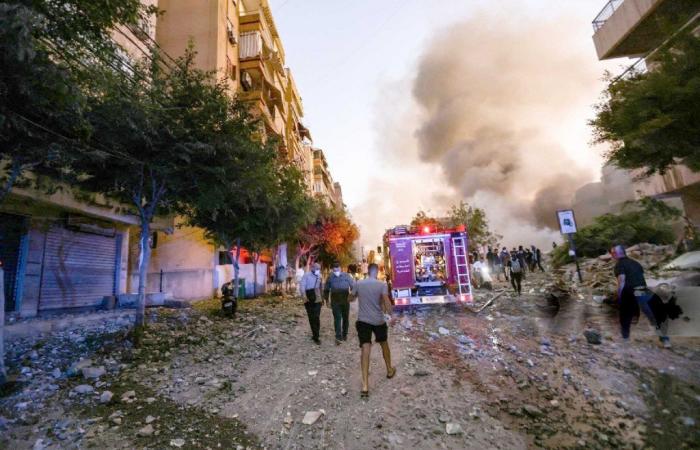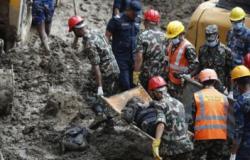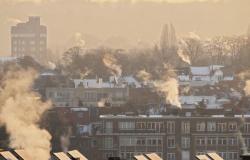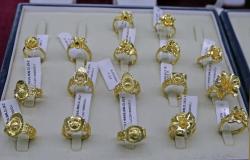
After the assassination of the leader of the Lebanese movement Hezbollah, Israel continues its attacks against Lebanon. Yesterday, the Israeli army said that more than 20 other members of Lebanese Hezbollah died in Friday’s strike on the organization’s central headquarters in the southern suburbs of Beirut, which killed its leader, Hassan Nasrallah.
Besides Nasrallah and another commander-in-chief, Ali Karake, Ibrahim Hussein Jazini, Samir Taoufiq Dib, Abed Al Amir Muhammad Sablini and Ali Naaf Ayoub were among those killed in the bombing on the central headquarters of the Lebanese movement, the statement added. Jazini and Dib are “among Nasrallah’s closest associates.
Due to their proximity to him, they played an important role in the daily operations of Hezbollah and Hassan Nasrallah in particular,” the army added. Earlier, she claimed to have killed Nabil Qaouq, “commander of the security unit (…) of Hezbollah and member of the central council” of the organization. Lebanese security reported a new Israeli attack in the southern suburbs of Beirut.
A source close to Hezbollah confirmed Nabil earlier. Qaouq was killed in a strike Saturday in Beirut’s southern suburbs, adding that he is a member of Hezbollah’s central council and responsible for security within the group. He joined the organization in the 1980s.
American reinforcements
The same day, the head of Iranian diplomacy, Abbas Araghchi, whose country called a meeting of the UN Security Council the day before, promised that the death of Brigadier General Abbas Nilforoushan, the deputy for operations of the head of the Iranian Revolutionary Guards, in the strike that killed Hassan Nasrallah, “would not go unanswered,” according to a statement published on the Iranian MAE website.
In turn, the United States assured yesterday that it had a “very robust” military presence in the Middle East after sending reinforcements, in response to fears of escalation linked to Israel’s strikes in Lebanon. “We have deployed additional forces to the region,” White House National Security Council spokesman John Kirby told ABC.
And “there are other options also available to strengthen and improve this system,” he added, saying he did not want to give more details. But “we already have a very robust military capability to defend ourselves and help defend Israel,” he said. According to J. Kirby, “it is too early to say how Iran will react.” Nevertheless, “we must prepare ourselves for some form of response (…)”, he added.
The Pentagon, for its part, affirmed that the aircraft carrier USS Abraham Lincoln is maintained in the region as well as a “high” presence of combat aircraft. A spokesperson specified that Washington intends to “further strengthen defensive air support capabilities in the days to come.”
Hezbollah confirmed on Saturday the death of its leader in an Israeli bombing on its stronghold near Beirut. The strike that neutralized him also killed Ali Karaké, the commander of Hezbollah’s southern front, according to the movement. A name is circulating to succeed the seyyed: it is his cousin Hachem Safieddine, head of the executive council of Hezbollah, the movement’s second leadership position, he is said to have survived the attacks until now. He also sits on the Jihad Council, which manages the group’s military operations. Designated as a terrorist in 2017 by the US State Department, he supports the Palestinian cause.
Decades of clashes
Hezbollah was born in the wake of Israel’s invasion of Lebanon in 1982. It is made up of dissidents from the Shiite Amal movement, activists from the Islamist Dawa party, students, among others. Strong in its desire to establish an Islamic state in Lebanon, the new party recognizes itself as an opponent of North American imperialism, Israel, NATO, capitalism, the USSR and communism. It imposes itself with its armed wing, like the Islamic resistance in Lebanon against Israel. He increased operations against the Israeli army, which then occupied a thousand square kilometers in southern Lebanon, as well as its auxiliary militia, the South Lebanon Army (ALS).
In February 1992, Israel killed the secretary general of Hezbollah, Sheikh Abbas Moussaoui, in a helicopter raid. Hassan Nasrallah succeeds him, the movement he leads is the only one not to have laid down its arms at the end of the Lebanese civil war (1975-1990). But it is integrated into the political field of the country and the slogan “Islamic Republic” has disappeared from its political program. He resisted the Israeli operation “Justice Served” carried out by the Israeli army in July 1993.
On April 11, 1996, the Israeli army launched a campaign of raids to break Hezbollah’s military potential and stop rocket fire into northern Israel, this was Operation Grapes of Wrath. An agreement was signed on April 26 between Israel and Hezbollah, which put an end to the operation.
The Israeli army withdrew from southern Lebanon in May 2000, after 22 years of occupation. In 1998, Tel Aviv accepted a UN Security Council resolution demanding a withdrawal “without delay” from Lebanon. In 2006, the movement engaged in a war with Israel by kidnapping two Israeli soldiers on the border of the two countries, claiming to want to exchange them for prisoners in Israel, which responded with a vast offensive.
The confrontation left more than 1,200 people dead in Lebanon, most of them civilians. In mid-September of this year, an Israeli attack using booby traps and walkie-talkies targeting members of Hezbollah killed 39 people.
11 health professionals martyred
At least 11 medical personnel were martyred on Saturday in a series of Zionist airstrikes targeting health facilities in the villages of Taybeh and Deir Seryan in southern Lebanon’s Marjeyoun district, local media reported . According to the Lebanese press agency, “at least 11 health professionals were martyred and 10 other people were injured in the strikes which hit health facilities.” For its part, the Lebanese Civil Defense reported the martyrdom of one of its members and serious injuries to another during Zionist airstrikes on the southern suburbs of Beirut late Friday evening. The Zionist entity has continued to bombard Lebanon since Monday morning with airstrikes that left more than 700 martyrs and nearly 2,200 injured, according to the Lebanese Ministry of Health. The Lebanese Minister of Health, Firas Al Abyad, also announced that 1,640 citizens, including 104 children and 194 women, have been martyred since October 8, 2023.





